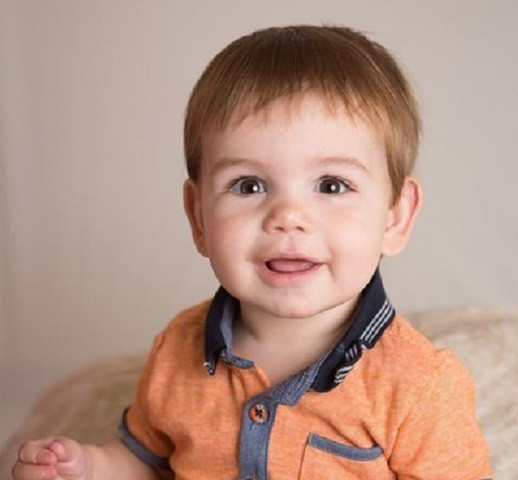William Mead: Untrained NHS non-emergency 111 helpline blamed for death of baby boy

A one-year-old boy died from a chest infection as NHS non-emergency staff were unable to identify the seriousness of his illness, a report has found. William Mead died from blood poisoning as a result of the infection in 2014.
A report into how the boy died suggested he might be alive today if staff on the NHS out-of-hours emergency 111 hotline were able to identify from his symptoms that the boy was suffering from sepsis, a potentially life-threatening condition triggered by an infection.
NHS 111 call handlers are not medically trained and instead work on a box-ticking system which "lacks sensitivity to the deteriorating paediatric patient". The report says the handler who spoke with the boy's mother, Melissa Mead, had dealt with the situation poorly and had only been at the job for a few weeks.
The report, seen by the Daily Mail, found 16 mistakes which contributed to William's death, including suggesting a trained medic would have realised the boy needed urgent medical attention if they heard the symptoms and not used the structured questioning system, NHS Pathways, used by the 111 call handlers.
William's mother even told how the staff on the 111 hotline had told her "it's nothing serious" soon before he died. The report also criticises GPs for failing to diagnose William and said an unwillingness to prescribe antibiotics may have also contributed to his death.
Mead, 29, told the Mail: "For us there are no words that can explain the profound loss that we live with after losing William. For us it is a debilitating life sentence that we relive every day."
Among the 16 mistakes highlighted in report include:
Call handler failed to refer "complex call" to a clinically trained staff.
A clinically trained person, the report said, would have responded to William's loud crying in the background.
111 system itself "not sensitive enough" to detect the signs of serious illness of this type in a young child.
One GP failed to spot a key sign of infection – green phlegm in William's vomit – at an appointment on 21 November.
She added: "There were multiple occasions in the lead-up to William's death where there were missed opportunities to treat William. We hope those involved in William's treatment will never make the same mistakes again. We also hope the recommendations made improve systems to ensure other lives are not lost."
Apologising to the parents, Lindsey Scott, director of nursing with NHS England in the South West, said: "Everyone involved in this report is determined to make sure lessons are learnt from William's death, so other families don't have to go through the same trauma.
"We're particularly grateful to Mr and Mrs Mead for their input and attention to detail, because their experiences during repeated contact with the NHS are critical to our understanding of what went wrong.
"In William's case, it's clear in looking back that opportunities to intervene more decisively were missed, but we will only be able to make a real difference if professionals across the country understand how different choices at critical moments might avert a similar tragedy. This report isn't about blame, but about learning and awareness. That applies not just to health staff but to parents as well, because both might be in a position where timely action is crucial."
© Copyright IBTimes 2025. All rights reserved.






















